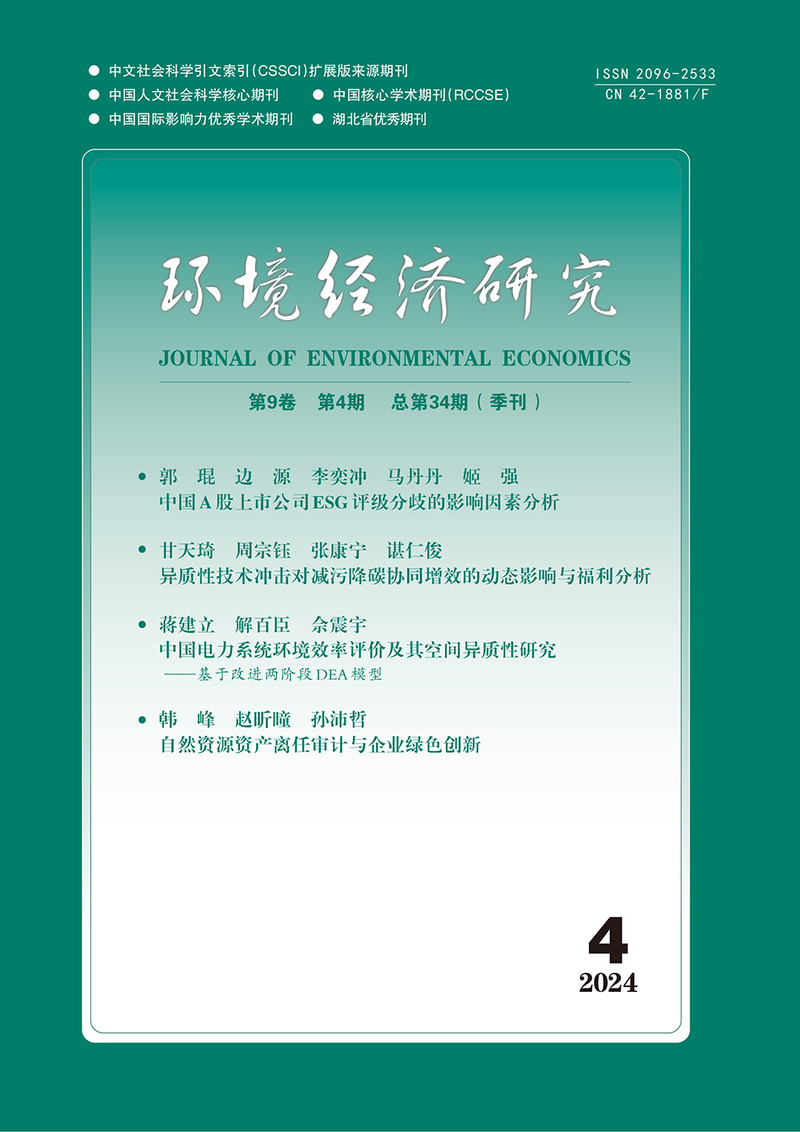Re-estimation of the Impact of Haze on Income Inequality:By Using Instrumental Variable
Wang Yan, Yu Hongwei, Shi Daqian and Zhang Xu
摘要:随着经济的发展,空气污染带来的问题逐渐凸显,这会阻碍经济发展,例如扩大收入差距等。空气污染与收入差距之间互为因果的关系会带来内生性问题,但现存有关空气污染与收入差距的研究较少关注其内生性,这可能造成估计结果的偏误。因此本文基于中国2000-2016年地级市PM2.5面板数据,选择较能反映中国收入差距的城乡收入比作为被解释变量,对雾霾影响收入差距的作用进行了再检验,并进一步使用中国居民家庭收入调查(CHIP)的个体数据,从健康人力资本角度分析雾霾对城乡收入差距的作用机制。结果显示,雾霾显著地造成了城乡收入差距的扩大,其中城镇居民健康人力资本受雾霾负向影响的程度显著低于农村居民,同时城镇居民健康人力资本对收入影响作用也明显低于农村居民,从而造成了城乡收入差距的扩大。基于以上研究,同时考虑到收入差距会阻碍发展中国家的经济增长,在发展中国家促进经济增长的进程中,必须加大雾霾的治理力度。
关键词:PM2.5;收入差距;逆温;健康人力资本
Abstract:With the development of economy, the problems caused by air pollution become increasingly prominent,which will hinder the economic development, such as widening the income gap and so on. Mutual causality relationship between air pollution and income inequality leads to endogenous problems, but existing researches on air pollution and income inequality pay less attention to endogeneity between them, which may lead to bias in estimation results. Therefore, this paper uses cross-city PM2.5 data in China during 2000-2016, selects the income ratio between urban and rural that can better reflect China's income gap as the explanatory variable and uses the instrumental variable of inversion temperature to re-examine the effect of haze on urban-rural income inequality. Furthermore, this paper also analyzes the mechanism of the effect of haze on the urban-rural income gap from the perspective of healthhuman capital by using the survey data of China Household Income Project. The results show that haze has significantly expanded the urban-rural income gap, and haze has significant less impact on health of urban residents than rural residents. At the same time, the effect of urban residents' health human capital on income is also significantly less than that of rural residents, both of which have led to an increase income gap between urban and rural. Based on the above research, and considering that income gap will hinder the economic growth of developing countries, haze management must be intensified in the process of promoting economic growth in developing countries.
Keywords:PM2.5; Income Inequality; Temperature Inversion; Health Human Capital
DOI:10.19511/j.cnki.jee.2019.04.008
